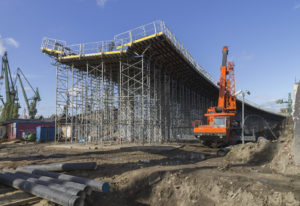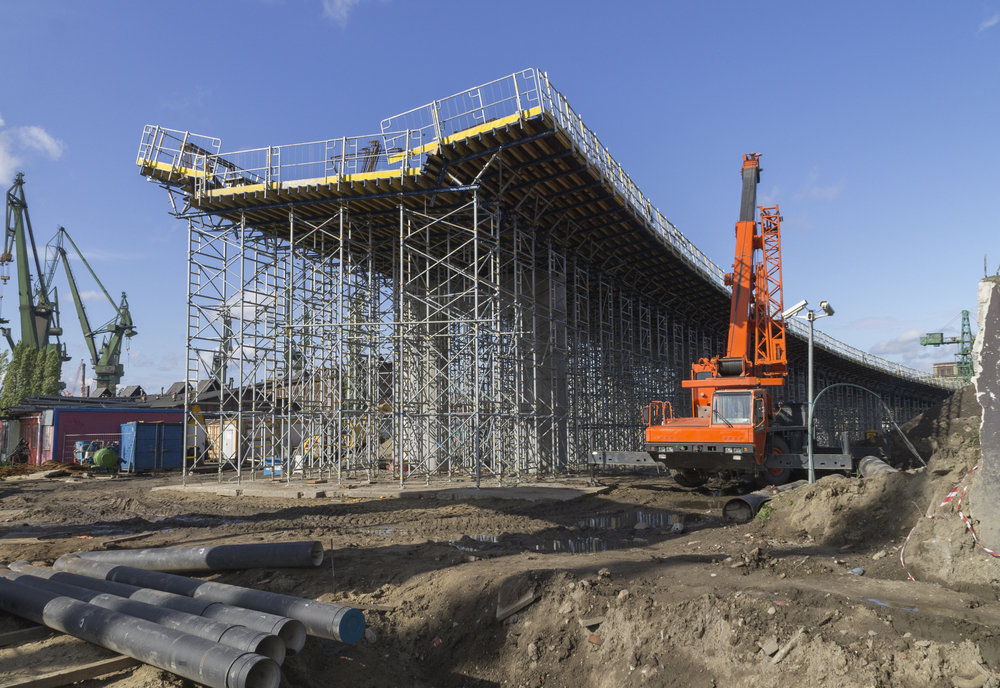
In the construction industry, retainage is frequently withheld from contracts. This is meant as an incentive for contractors and subs to complete their work to a satisfactory level. However, given how important cash flow is on any given project, retainage practices need to be regulated. The state of New Jersey only regulates retainage on public works projects. Let’s take a look at the specific rules and requirements for all types of public works projects.
New Jersey retainage laws overview
The New Jersey retainage laws are scattered across a number of different statutes, depending on the project type. These include N.J. Stat. §40A:11-16.3 covering state and municipal public works contracts, N.J. Stat. §27:7-34 covering highway contracts, and N.J. Stat. §18A:18A-40.3 which governs retainage on Board of Education contracts. There are no regulations that cover private projects.
The Ultimate Guide to Retainage in the Construction Industry
Amount of retainage
The baseline maximum amount of retainage that can be withheld from state and municipal contracts is 2% of the contract price to be withheld from each monthly progress payment. This applies to all contracts that exceed $100,000.
For highway contracts, the same rate applies. Yet, once the construction contract has reached substantial completion, the rate of retainage should be reduced to 1%. If, however, the Department of Transportation determines that work isn’t progressing satisfactorily, then the retainage withheld can be increased to 4% until final completion and acceptance of the work.
As for any Board of Education contracts, the maximum amount of retainage that can be withheld depends on whether or not there is a performance bond posted on the project. If there is no performance bond, then retainage is limited to 5% of the contract price. However, if there is a performance bond on such a contract, then the percentage varies depending on the outstanding balance of the original contract. Retainage can be withheld at a rate of 2% when the balance is over $500,000. Once the outstanding contract balance falls below this amount, then 5% of retainage may be withheld.
Release of retainage
The state of New Jersey has no statutes that provide for the partial release of retained funds on construction projects. For final payments, once a general contractor (or prime contractor) has performed in accordance with the provision of their contract, they may send an application for final payment and retainage. Once final acceptance is made, all payments must be made within 45 days.
As for payments from prime contractors to subcontracts, this is governed under the New Jersey Prompt Payment Act. Retainage payments are treated the same as any other payments. Upon receipt of retainage from the public entity, the prime contractor must pay their subcontractors within 10 days. The same goes for all other payments down the construction payment chain.
Late pay penalties
The New Jersey retainage statutes don’t provide any specific penalties for non-compliance. Therefore penalties for late payment of retainage will be assessed either through the terms of the contract or through the prompt payment provisions. Under those statutes, the amount of payment improperly withheld will be subject to interest accrual at a rate equal to the prime rate plus 1%. For reference, at the time of publication of this article, the rate is 5%. Therefore, interest will accrue at 6% a year, or 0.5% a month. Additionally, if the payment dispute ends up in court, the prevailing party will be awarded attorneys fees.
Make Your Retainage Demand Now
Bottom line
The withholding of retainage on construction projects is a burdensome practice, yet it is a reality in almost every contract. The New Jersey retainage statutes are fairly strict. They don’t provide many avenues to reduce the rate or receive retainage payments early. Anyone working on a public project within the state should be familiar with these regulations. That way they can ensure they get paid what they’ve earned.
Additional resources
- Unpaid in the Garden State? The NJ Prompt Payment Act Can Help
- Prevailing Wages in New Jersey: What Contractors Should Know
- How to Get Paid on New Jersey Public Projects
- New Jersey Construction Trust Fund Statute | Public Project Requirements



